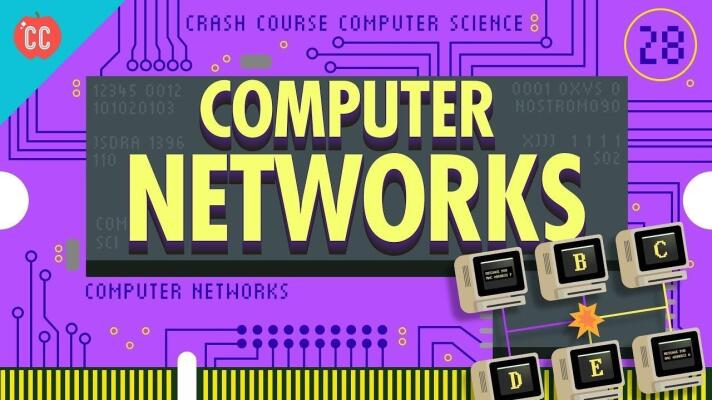Latest Episodes
In our SERIES FINALE of Crash Course Computer Science we take a look towards the future!
Episode:
S1
E40
|
12:21
Today, we’re going to discuss some psychological considerations in building computers.
Episode:
S1
E38
|
12:28
Today we’re going to talk about how computers understand speech and speak themselves.
Episode:
S1
E36
|
11:39
Today we're going to talk about robots!
Episode:
S1
E37
|
12:17
Today we’re going to talk about how computer science can support learning.
Episode:
S1
E39
|
11:44
How do computers make decisions on the data they collect?
Episode:
S1
E34
|
11:34
Today we’re going to talk about how computers see.
Episode:
S1
E35
|
10:50
Today we're going to talk about hackers and their strategies for breaking into computer sy
Episode:
S1
E32
|
11:52
Today we’re going to talk about how to keep information secret, and this isn’t a new goal.
Episode:
S1
E33
|
12:16
Cybersecurity is a set of techniques to protect data against threats.
Episode:
S1
E31
|
12:21
Today we’re going to discuss how 3D graphics are created and rendered for a 2D screen.
Episode:
S1
E27
|
12:23
Today we start a three episode arc on the rise of a global telecommunications network.
Episode:
S1
E28
|
11:58
Today we’re going to discuss the World Wide Web - not to be confused with the Internet.
Episode:
S1
E30
|
11:36
Today, we're going to talk about how the Internet works.
Episode:
S1
E29
|
11:42
Today, we're going to discuss the critical role of graphical user interfaces.
Episode:
S1
E26
|
12:38
Today, we’re going to take a look at computing’s origins.
Episode:
S1
E1
|
11:36
Today we're going to talk about the birth of personal computing.
Episode:
S1
E25
|
10:15
This is an era that saw huge government funded projects - like the race to the moon.
Episode:
S1
E24
|
10:57
Today we begin our discussion of computer graphics.
Episode:
S1
E23
|
11:31
Today, we are going to start our discussion on user experience.
Episode:
S1
E22
|
11:23
Today, we’re going to talk about lossless compression.
Episode:
S1
E21
|
11:44
Today we’re going to look at how our computers read and interpret computer files.
Episode:
S1
E20
|
11:42
Today we’re going to trace the history of these storage technologies.
Episode:
S1
E19
|
12:17
Computers keep getting faster and faster...
Episode:
S1
E18
|
12:55
So you may have heard of Moore's Law...
Episode:
S1
E17
|
12:29
We'll talk about how large programs are typically broken up into into function units.
Episode:
S1
E16
|
10:22
The father of computer science himself: Alan Turing.
Episode:
S1
E15
|
12:51
Today we’re going to talk about on how we organize the data we use on our devices.
Episode:
S1
E14
|
10:06
Algorithms are the sets of steps necessary to complete computation.
Episode:
S1
E13
|
11:30
We’ll start by creating small programs for our very own video game to show how statements
Episode:
S1
E12
|
11:35
These new languages utilized new abstractions to make programming easier.
Episode:
S1
E11
|
10:56
Today, we’re going to look at the history of programming
Episode:
S1
E10
|
9:04
We’re going to take a step back and look at how CPU speeds have rapidly increased.
Episode:
S1
E9
|
12:00
Today we’re going to take our first baby steps from hardware into software!
Episode:
S1
E8
|
10:14
Today we’re going to build the ticking heart of every computer.
Episode:
S1
E7
|
11:15
Today we’re going to create memory!
Episode:
S1
E6
|
12:07
Today we're going to talk about a fundamental part of all modern computers.
Episode:
S1
E5
|
11:09
We’re going to take a look at how computers use a stream of 1s and 0s to represent data.
Episode:
S1
E4
|
10:38
We’re going to focus on three fundamental operations - NOT, AND, and OR.
Episode:
S1
E3
|
10:01
As the scale of human civilization continued to grow as did the demand for more devices.
Episode:
S1
E2
|
10:43










































